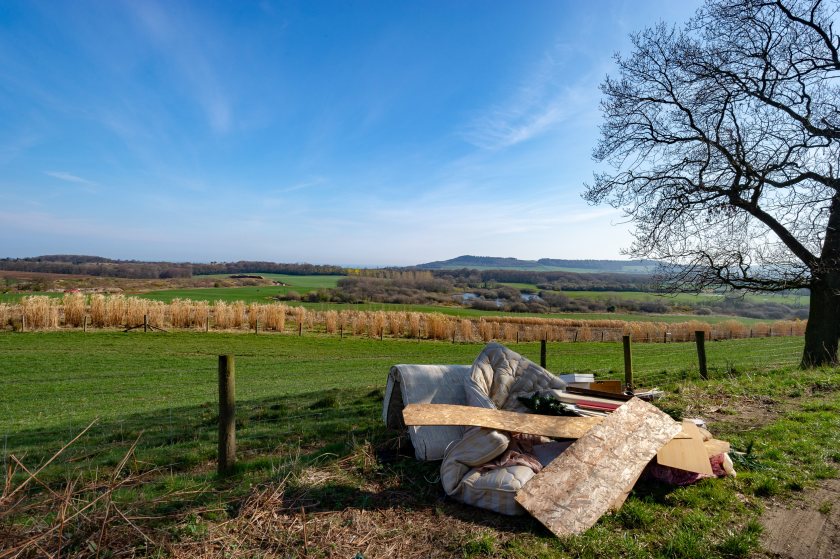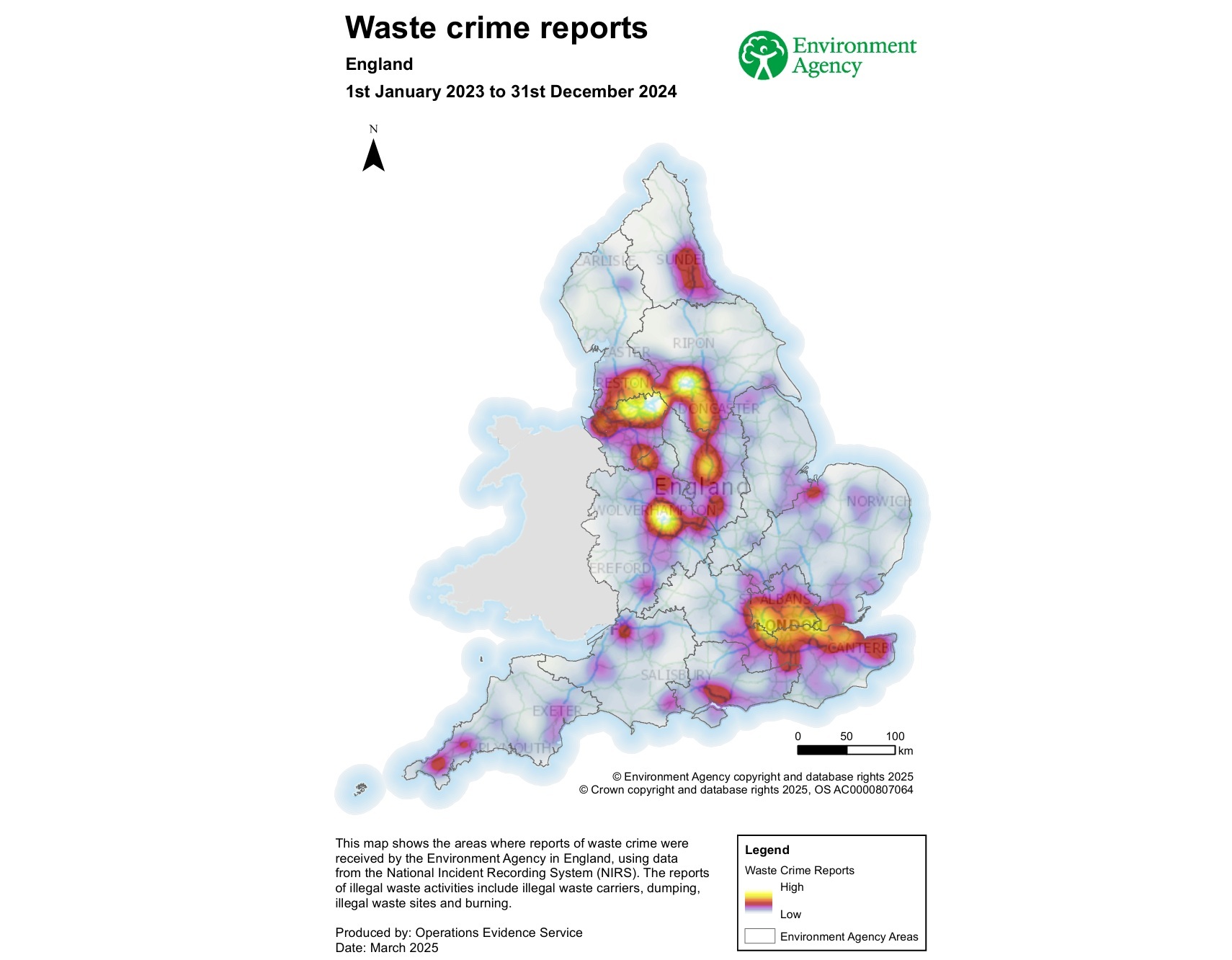
The public is being urged to help crack down on waste crime as a new heatmap reveals the nation's worst-hit regions, including rural areas.
As part of a crackdown on rogue waste operators, the Environment Agency has today (28 May) released the map which shows areas most affected by the crime.
Data by the agency reveals the scale of the problem, with nearly 17,000 reports of waste incidents - including fly-tipping - logged over a two-year period.
The heatmap indicates the highest concentration of reports came from the West Midlands (2,008), Yorkshire (1,791), and East Anglia (1,678).
With offending rife across the country, the Environment Agency is now urging the public to step forward and report any suspicious activity.
Emma Viner, enforcement manager at the agency, warned: “Waste crime is toxic - criminals steal business from legitimate operators, trash local communities, harm the environment, and avoid paying taxes which fund public services.

"We must stand united against criminals, working together to stop them. We can all play our part by taking steps to keep waste away from criminals in the first place and reporting any suspected wrongdoing.”
Waste crime poses a serious threat to farms and the countryside, leaving behind mountains of dumped rubbish that damage land, pollute water sources, and harm livestock.
Fly-tipping on farmland can also create biosecurity risks and lead to costly clean-up operations for already stretched farmers.
Councils across the country dealt with well over 1 million fly-tipping incidents on public land alone last year, a rise of 6%.
Rural campaigners frequently point out that many fly-tipping incidents occur on private land, painting an even more damaging picture of the financial burden and environmental impact it brings.
Earlier this year, a Hertfordshire farmer was forced to pay out thousands of pounds after clearing 40 tonnes of illegally dumped waste from her land.
However, according to the Environment Agency’s National Waste Crime Survey, only around 25% of all incidents are currently reported.
Officials are urging the public to act when they witness suspected waste crime, as early reporting increases the chances of enforcement officers being able to investigate and intervene.
Members of the public can report waste crime incidents via the Environment Agency’s hotlines or through local authorities.
